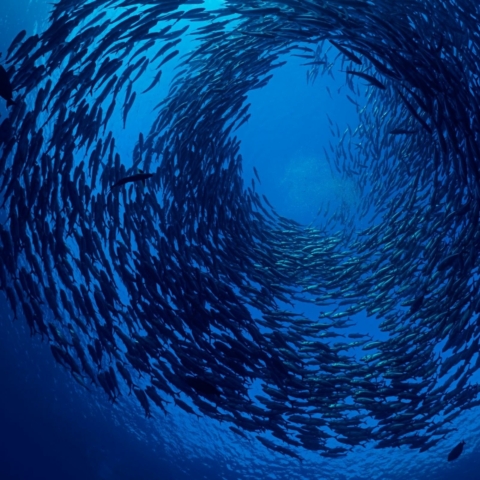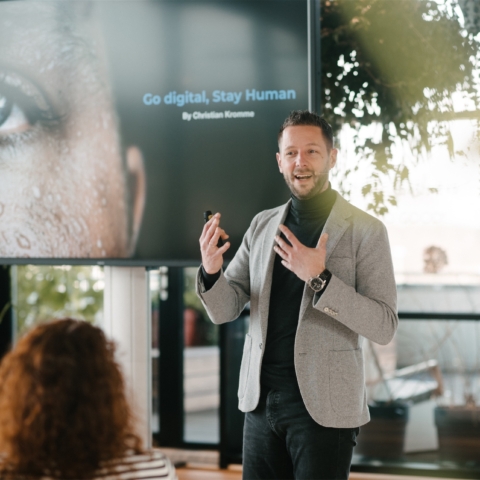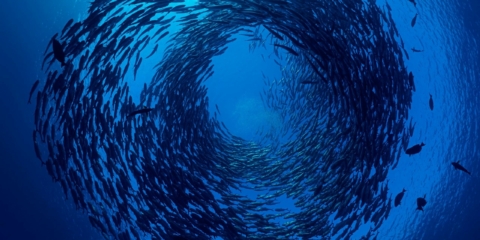Would you like to get notifications from Christian?
If we want to build agile organizations, we should take a cue from nature. After all, it has been around for billions of years and is infinitely more agile than any human-made organization. In this keynote, we will explore some of the principles that drive natural ecosystems and see how we can apply them to our businesses. It will inspire organizations to determine who they are, how they operate, and how they can grow. By borrowing from the agility of natural systems, we can create organizations that are better able to adapt to change and thrive in today’s rapidly-changing world.
Customers
Purpose
Nature always operates with a very clear purpose. What are the purpose principles of natural ecosystems that can be applied to business?
Culture & Value
Our subconscious (cell culture of our body) mind runs 95% of the show, this is true for organizations as well. So not only the conscious culture and values are important but in particular the subconscious culture and values.
Structure
What organizational structures and principles do natural systems employ to become agile and flexible? What can we learn from nature?
Decision making
Future organizations need to be decentralized, self-organizing, and autonomous. Who or what will make the short and long-term decisions?
Talent & Learning
Skills and talents needed in future organizations will be focused on problem-solving, emotional intelligence, flexibility, adaptability, creativity, and critical thinking. Due to new exponential technologies like Ar and Ai, learning will be a continuous and fun process.
Fluid Ecosystems
The shift from traditional hierarchies to more networked and distributed ecosystems will have a positive impact on people and the planet. Fluid organizations will adapt to their environment more easily and will start to have a positive impact on our planet.
Tech platforms
Nature and biology are all about unity and empowerment to enable the growth of fluid ecosystems. If we start to use technology for that same purpose, organizations will also become fluid ecosystems.

Organizations will need to be more fluid, agile, dynamic, and adaptable: the ability to change and adjust in response to new situations and environments. We are on the cusp of a new era of organizations, ones that are more fluid and agile and which behave like swarms we see in nature. Thanks to the exponential evolution of communication and collaboration technologies, we are now able to build organizations that are better able to adapt and respond to change. These new organizations will be powered by AI and blockchain, and they will be more open, transparent, and decentralized.

Due to the exponential development of technologies like AI and Robotics, many of today’s most essential skills and talents will become less valuable in the future. Problem-Solving, Interpersonal Skills, Adaptability, Creativity, and Critical Thinking are just a few examples of important skills that will get more crucial in the future. Organizations will need to put more emphasis on developing these types of skills in their employees.
And as we move into the future, we will see more and more businesses adopting these principles. There is no doubt that the organizations of tomorrow will be very different from the businesses of today. But one thing is for sure, they will be more human-centered.

Future Organisations will use powerful technology to unite and empower their people. We have already seen the first DOAs (Decentralized Autonomous Organisations) emerge! These new organizations are powered by AI, blockchain, and hivemind technology and therefore they will be more open, fluid, transparent, and fully decentralized. What does that mean for the future of work?
It means that we will see a shift from the traditional hierarchical organizational structure to a more flat, networked, and distributed model. This new type of organization will be better equipped to adapt and respond to change. We are already seeing the beginnings of this new type of organization, and it is only going to become more prevalent in the years to come.

The rise of swarm-like human-centered organizations will have a positive and regenerative impact on people and the planet. Fluid and agile organizations will put each human being at the center of their own ecosystem. These eco-systems enable individuals to focus on their passion and intrinsic motivation and as a result, they enable harmony and balance on a larger scale.
As a result, people will be more engaged and productive in their work. In addition, these organizations will be more sustainable and have a smaller ecological footprint. Fluid swarm-like organizations also adapt seamlessly to the fast-changing ecosystem, and because they adapt easily there is less environmental friction. So overall, the rise of hum

When you think of a keynote, what comes to mind? A dry, boring presentation that is only useful for corporate types? If so, then you are in for a surprise. Christian Kromme is a Keynote Speaker who will change your mind about keynote presentations. His keynotes are highly visual and engaging, and he can tailor his message to fit any audience.
Whether you need a keynote for a live event or something that can be viewed online or even pre-recorded, Christian has you covered. His presentations are truly inspiring and thought-provoking, and they will open your eyes to the world of tomorrow. If you are looking for a Keynote Speaker who will challenge the status quo and provide disruptive insights, then Christian Kromme is the right choice for you. Contact him today to learn more about how he can help your organization achieve its goals.
Christian is a futurist and trendwatcher who speaks about the impact of exponential technologies like AI on organizations, people, and talents. Christian tailors his presentations to your audience’s specific industries and needs.




Embracing the advancements of technology and AI can enhance our humanity. We can focus on developing our unique talents and skills by automating mundane tasks and freeing up our time. As humans, we can adapt and learn, allowing us to evolve and stay relevant in a rapidly changing world constantly.


Organizations will need to be more fluid, dynamic, and adaptable: the ability to change and adjust in response to new situations and environments. We are on the cusp of a new era of organizations, ones that are more fluid and agile and which behave like swarms we see in nature.




In the future, 3D printing and generative design will allow for products to be designed in a more decentralized manner, and production will take place closer to the customer and fully on-demand. 3D printing technology will also allow for more customization and personalization of products.


The agricultural industry is ripe for disruption. Robotics, AI, and IoT are all technologies that have the potential to radically transform the way we grow food. In combination with vertical farming, these technologies could increase the efficiency and quality of agricultural products.

A human-centered society is one that puts people first and where technology is used to unite and empower people. It is a society that values biological life and dignity above all else. It is a society that recognizes the importance of human relationships and works to strengthen them. In a human-centered society, all members of the community are valued and treated with respect.


The future of healthcare is here. New technologies like AI, IoT, big data, and smart sensors make it possible to become the CEO of your own health. Imagine that your phone can listen to your voice and AI algorithms can detect small nuances in the tone of your voice that indicate specific diseases.
